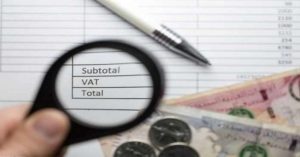by WorldTribune Staff, January 2, 2018
Seeking to increase revenue amid lower oil prices, Saudi Arabia and the United Arab Emirates have for the first time instituted a value added tax (VAT).
 The tax, a 5 percent levy applied to the majority of goods and services, kicked in on Jan. 1.
The tax, a 5 percent levy applied to the majority of goods and services, kicked in on Jan. 1.
Gasoline and diesel, food, clothes, utility bills and hotel rooms all now have the VAT tax applied.
Some areas have been made exempt from the tax, or given a zero-tax rating, including medical treatment, financial services and public transportation. There also will be no income tax.
Saudi Arabia also introduced a tax on tobacco and soft drinks as well as a cut in some subsidies offered to locals. In the UAE, road tolls have been increased and a tourism tax introduced.
More than 90 of Saudi budget revenues come from the oil industry while in the UAE it is roughly 80 percent.
The UAE estimates that in the first year, VAT income will be around 12 billion dirhams ($3.3 billion).
The other members of the Gulf Cooperation Council – Bahrain, Kuwait, Oman, and Qatar – have also committed to introduce VAT, though some have delayed plans until at least 2019.
Subscribe to Geostrategy-Direct __________ Support Free Press Foundation
